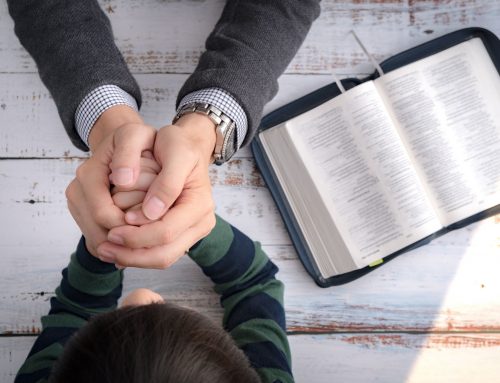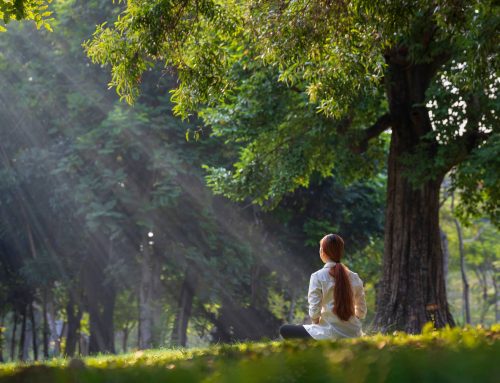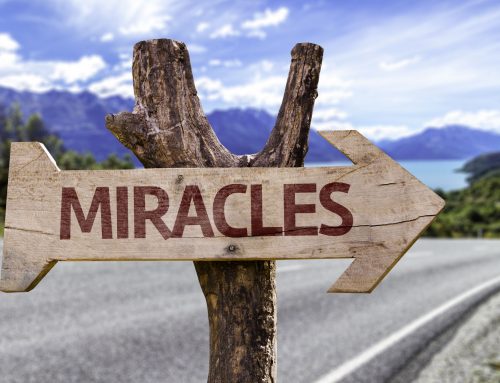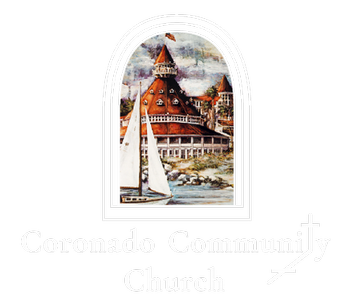Luke 12: 13-21
A Sermon by Pastor Eric Smith
Published On: July 31, 2022
One of the churches I served is the University United Methodist Church located in Irvine. It is located several blocks away from UC Irvine – the church campus is lovely. Another lovely aspect of the church is a Japanese language congregation called Nozomi. They are a fellowship of people who were born in Japan but came to the U.S. – usually because they married an American.
One of the joys of the group – and a blessing for the Church – was an exchange program they had with a small city in Japan. Each year a delegation of youth would travel from one home country to the other; one year it was Japanese students coming to Irvine – the next year it was youth from Irvine traveling to the Japanese City of Minami Sanriku. It was an educational adventure and helped young people to expand their vision of the world – and establish lifelong relationships with people in another country. This program had gone on for 10 years until 2011.
In 2011 there was a great earthquake under the ocean near Japan. You probably remember it – a massive tsunami was created and it hit the coastline of Japan. It devastated where it hit. There was irreparable damage to a nuclear reactor. One town was wiped out – the town was Minami Sanriku… the city that exchanged students with the Irvine church.
The population of the town had been 14,000 people. When it could finally be determined, weeks later, it was clear that 1200 people died in the tsunami. Our friends from the town spoke about their experience.
When the tsunami warning came we all climbed a high hill above the city. About 7,000 people.
There we watched as the tsunami covered our town. Only the tallest buildings remained standing.
Those people watched as everything they had was washed away in 10 minutes time. Can you imagine that? Everything you own… home, furnishings, the family photos, the heirlooms, the cars… everything gone.
May you never have to face such a thing.
Today Jesus’ parable invites you to think beyond the acquisitions of your life and ask, what is there that can never be taken away?
This is an amazing and challenging time to be alive.
The past two years of Covid pandemic brought so many changes. We made homemade masks, looked for news on the grapevine about which stores had toilet paper in stock, and spent way more time in our homes than we did before it.
Early this year Russia went to war with Ukraine. Our nation, and most of the world, objects, but our support for Ukraine is moderate in the hope that nuclear bombs won’t be used.
Gas prices have skyrocketed, inflation has roared, and the stock market has significantly declined.
Climate change is affecting temperatures – most of America, and much of Europe has been baking in record setting heat. The drought in the southwest has taken water reserves so far down that sunken ships and murder victims whose bodies were disposed of in Lake Mead are emerging. And, of course, we have our unprecedented national political drama.
You know all this. All of it impacts us. Of course it does. It has been and continues to be tough stuff. People feel depressed, overwhelmed, and insecure.
In our scripture reading, someone asked Jesus to step into a family matter… an inheritance argument. He took the moment to talk about life… and what constitutes real wealth in our lives. He told a story.
The main character is a rich person. By the standards of what was considered wealth in Jesus’ time each of us are, you might say, the rich person in this story.
This person, prudent with his assets, met with a financial advisor, and made a few adjustments to his future financial plan. (It doesn’t really say that, but it fits us pretty well.) Thinking about it later he felt comfortable with both his present and potential future income. All was good. Time to relax and enjoy. And suddenly he died. So much for financial plans.
Everybody dies – we all know that. Well… almost all. Author William Saroyan said, I thought I’d be the exception. He wasn’t.
Our death, yours and mine, will take place. It is an intellectual proposition that we affirm, but that’s about as far as we’ll take it. Unless you know you are dying.
My friend the Rev. Dr. Barbara Kilgore, known to you as the originator of the spinach sermon, is dying. She has cancer. It is metastasized. It may be a short time until her death, it may be a bit longer. She doesn’t know yet. A defining biopsy will take place soon. We talk about it.
Barbara is a pastor. She has been with many people who have faced a similar diagnosis and gone through this process. She said she’s seen people approach and experience their own deaths both gracefully and not-so-gracefully.
She said, Death is a part of life. It’s a part of every life. Unless it’s sudden we all face it – it’s another part of our lives. I have tried to live my life well and I want to die well, too.
Amen Barbara.
Somewhere ahead in our lives will be our death. Not a bad thing – it’s a true thing.
Jesus told his folks to be rich toward God. Translation? Invest yourself with as much care and planning in your spiritual life as you do in your physical life.
Why do that? Why not just live for the moment until there are no more moments?
In the language of Christian faith the issue is heaven. So let’s think about that.
Common Christian thinking is that when we die we go to heaven. A reward for life well-lived.
Maybe not.
Joan Chittister, a Benedictine sister and social psychologist, has a different take on it. In her book called, In Search of Belief, she wrote this…
Heaven is not something we get…it is something we become.
Heaven is something we find within ourselves, something we discover beyond ourselves,
something we come to see and learn to touch and feel in us and around us now.
It isn’t that heaven won’t come.
It’s just that heaven already exists.
It’s not that we won’t go to heaven.
It’s just that heaven is already here.
Once we turn away from childish notions of heaven,
we find it where it has always been: inside ourselves.
So that’s good insight for improving the quality of our spirituality as we live each day, but… there’s even more to consider.
Our congregation doesn’t have children right now. We have in the past, we will in the future…and then we’ll return to having Children’s Time during worship.
It’s a spontaneous time in worship – you just don’t know what will happen. Folks like to see their pastor on the hot seat …because children say things…
One Sunday, years ago, when I served Holliston Church in Pasadena, I had what I thought was an inspired idea for children’s time. I asked the kids about getting into heaven; I had questions – like this…
If I sold my house and my car, had a big garage sale, and gave all my money to the church, would that get me into heaven?
They all answered together – “NO!”
If I cleaned the church every day, mowed the yard, and kept everything neat and tidy, would that get me into heaven?
“NO!”
Well, then, if I was kind to animals and gave candy to children and loved everyone, would that get me into heaven?
“NO!”
About that time I was thinking they were more theologically sophisticated than I had given them credit for…Then how can I get into heaven?
A little girl shouted out, “You gotta’ be dead!”
N.T. Wright is one of the most formidable figures in the world of Christian thought. He is a theologian in residence at Oxford.
He doesn’t believe in heaven — at least, not in the way that millions of today’s Christians understand the term
In his writing he mentioned a children’s book by Maria Shriver called What’s Heaven, which describes it as “a beautiful place where you can sit on soft clouds and talk… If you’re good throughout your life, then you get to go [there]… When your life is finished here on earth, God sends angels down to take you heaven to be with him.”
Lots of adults are all about this concept, too.
“The Biblical truth, says Wright, “is very, very different.”
Our culture is so fixated on dying and going to heaven when the whole Scripture is about heaven coming to earth. Those in whom the Spirit comes to live are God’s new Temple.
They are, (we are) individually and corporately, places where heaven and earth meet.
We have often heard that resurrection is just a metaphor and means Jesus died and was glorified – in other words, he went to Heaven, whatever that means. But the word ‘resurrection’ simply didn’t, and doesn’t mean that.
After two thousand plus years there is no agreement between scholars or mystics about what takes place for us on the other side of death. But they are mostly agreed that something does take place, and whether it is collective consciousness or individual consciousness or Jesus sitting on a throne, there is more for us on the other side.
His followers, though, have been resolute for over two thousand years both in personal belief and in proclaiming resurrection.
I don’t want to imply for you that I know what happens to us and for us on the other side. I don’t. But I’m faithfully skeptical and curious. And, beyond the mythological hyperbole of the New Testament, I have always felt that another facet of reality awaits us.
In the story Jesus implied that the rich man wasn’t rich toward God. His caution is guidance for all of us who value and embrace spirituality. Being present in the moment is always a good practice, but there is a future we want to be living for as well.
Shortly after I was appointed to serve as the associate minister at Claremont United Methodist Church – I was summoned to the bedside of Archie Matson. Archie was then in his 80’s and dying. He had served as a Methodist Minister for all his adult life. I didn’t know him prior to that visit, but I later learned that he was a brilliant man who had a passion. His passion was death. What it is – how it works – what happens next – where people go – and what heaven is like. Archie took on those topics passionately.
That first day I was with him he lay dying. He couldn’t speak except for a few whispers that I mostly didn’t get. But at the close of our visit – such as it was – he wanted to give me a copy of his book called, Afterlife: Reports from the Threshold of Death.
Archie smiled at me with eyes that were bright and alert and scrawled an inscription on the inside cover that begins – to Eric… God’s best is up ahead. There is a second sentence but his handwriting was so shaky I’ve never been able to decipher what it says… it’s a mystery. (right?)
Archie was rich toward God.
He died later that week – and I know that he anticipated the moment of his death with wonder, joy, and the anticipation of finally getting to find out what comes next.
Let me leave you with the refrain of an old hymn…. (Beams of Heaven as I Go)
I do not know how long ‘twill be
Nor what the future holds for me
But this I know
If Jesus leads me
I will get home someday




